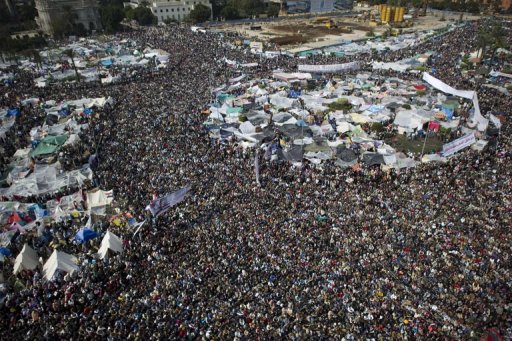CAIRO: A survey released on Sunday has revealed the economic hardships experienced by Iraqis living in Egypt.
The survey, carried out by the American University in Cairo’s Center for Migration and Refugee Studies (CMRS) in cooperation with the governmental Information and Decision Support Center (IDSC), and funded by the Ford Foundation, covers 4,100 Iraqis.
CMRS director Philippe Fargues said during a seminar to launch the report held Sunday that the survey was intended to “fill a knowledge gap .
“Flight from Iraq is a massive phenomenon: there are some 2,300,000 Iraqis living in neighboring countries but until now we had very little information about Iraqis in Egypt, Fargues explained.
Fargues told the seminar that Egypt replaced Jordan and Syria as a refuge for Iraqis in 2006.
“In 1993, just under 1,500,000 Iraqis fled the country. The number leaving each year decreased until 2005.
“There was already a significant Iraqi presence in Jordan before 2005 but the terrorist bombings in Amman changed this.
“Syria was also a key country which received a significant number of Iraqis until 2006 when it tightened its border control. This was when Iraqis started coming to Egypt.
The survey reveals that 62 percent of those interviewed arrived in Egypt in 2006.
An estimation of Egypt’s total Iraqi population based on an extrapolation from UNHCR records and the percentage of those surveyed who said that they were registered with UNHCR puts the population at between 15,000 and 20,000.
Concerning their reasons for leaving Iraq, 84 percent said that they had left because of security concerns, 61 percent because of having received direct threats to their safety and 4 percent because of economic hardship.
Fargues suggested that the high percentage who listed security concerns as the reason for leaving Iraq should dispel any perceptions that their motivation for doing so was economic. The survey – the first of its kind in Egypt – was carried out by 13 researchers in four Egyptian governorates with high concentrations of Iraqi residents: Giza, Cairo, Sixth of October City and Alexandria.
“Urban clusters of Iraqis are located primarily in Sixth of October City and Nasr City.
CMRS researcher Sara Sadeq suggested that Cairo’s satellite towns may have been selected for several reasons.
As new areas, Sadeq said, it is easier for outsiders to settle in them than in Cairo’s older, more established, neighborhoods. In addition, the towns have an established Iraqi community and are near private universities.
The proximity of private universities is significant because Iraqis do not have access to free education in Egypt: 15.2 percent of those interviewed mentioned the high cost of education as a significant concern.
According to the study, 93.2 percent of school-age children surveyed are enrolled in private schools, while 6.8 percent are of school-age but are not enrolled in any schools.
The high premium put on education amongst Egypt’s Iraqi community is evident in the fact that 85 percent of those surveyed are university graduates and 75 percent are educated to post-graduate level, making them “a significant pool of skills according to Fargues.
Despite this, 61.5 percent of Iraqis surveyed are employed in unskilled labor because of the prohibition placed on them working.
Of those surveyed 47.9 percent listed a lack of work opportunities, low wages and the incompatibility of their employment in Egypt with either their qualifications or their original profession in Iraq, as a concern.
According to the survey, 67 percent of Iraqis had funded their trip to Egypt by withdrawing their savings while 51 percent sold their house and 8 percent borrowed money.
Fargues said that his indicated “that they were anticipating difficult times in Egypt and that it would be hard to earn a living in Egypt.
Their fears would seem to have been well-placed, given that while the average household monthly expenditure of those surveyed is LE 3,556, average monthly income is LE 3,306.
Sadeq explained that while Iraqis’ relations with Egyptians are “generally positive, exploitation of their precarious situation in Egypt by landlords who charge them significantly more for rent than that paid by Egyptians is an exception to this: 22.7 percent of those surveyed listed high rent as a major concern.
Health expenditure is another significant outlay. Excluded from government-subsidized, almost free healthcare, 60 percent of Iraqis surveyed use private hospitals, while 7.3 percent don’t access health services at all.
CARITAS offers refugees and asylum-seekers access funding for health treatment; however, 15.2 percent criticized its referral system.
Under this system, those in need of health treatment must obtain a referral from CARITAS before undergoing the treatment – there is no system of post-treatment reimbursement.
Fargues said that some of those questioned for the survey said that they had had to forego Caritas funding in emergency cases in order to save a loved one’s life.
Health is a particular concern given that the survey reveals that 36.5 percent of households surveyed have a member with a chronic disease (including diabetes, or kidney or liver failure).
Following the seminar, some of the Iraqis who attendees asked how the survey would improve their situation and expressed skepticism about its ability to do so.
Hassanein El-Khafaji, an Iraqi who had been involved in conducting the survey suggested that “before we can fix the problem, we have to know what it is.
Fargues suggested that the survey will provide a useful tool to influence decision-makers.
Another Iraqi audience member questioned why a representative of the Egyptian government had not attended the seminar, prompting IDSC director Maged Othman, who was in the audience, to explain that IDSC is part of the Egyptian cabinet.
The questioner expressed his regret at the hostile tone of certain media reports concerning Iraqis in Egypt, and said that their circumstances were steadily deteriorating.
He reminded Othman that during the 1980s Iraq had welcomed some 8 million Egyptian migrants – at that time a third of the Iraqi population.

